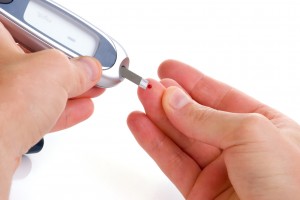
Diabetes is a chronic, incurable disease caused by a deficiency or lack of use of insulin, leading to an excess of sugar in the blood. Produced by the pancreas, insulin is a hormone that allows glucose (sugar) in food from being used by cells of the human body. The cells have all the energy they need to function.
If insulin is insufficient or if it does not fulfill its role properly, as is the case in diabetes, glucose (sugar) can not be used to fuel cells. It accumulates in the blood and is then released into the urine. Over time, high blood sugar caused by excessive glucose in the blood causes some complications, including the eyes, kidneys, nerves, heart and blood vessels.
